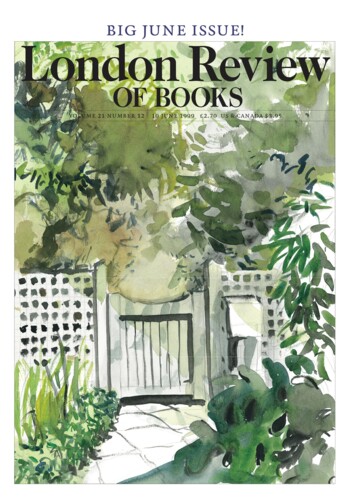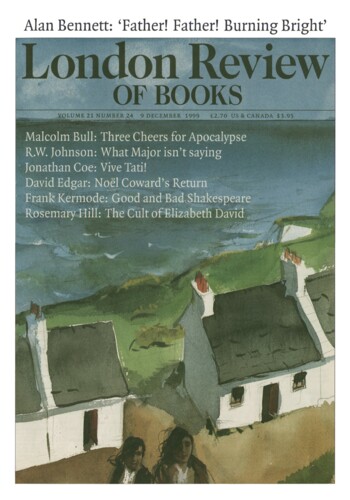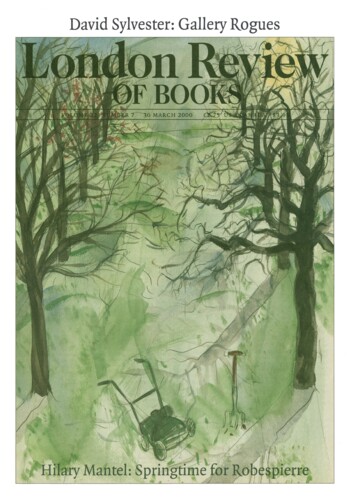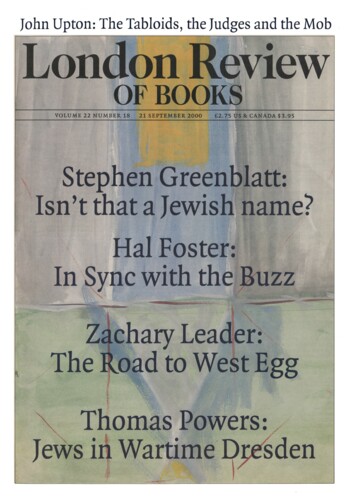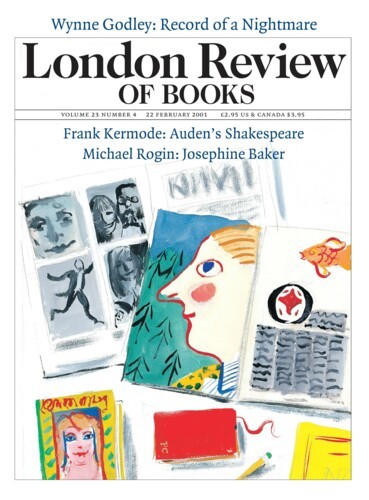Lunch Pumphrey, Skeets Benvenuti and a Gang of Other Vicious Tush Hogs: Daniel Woodrell
Christopher Tayler, 10 June 1999
In the rich American vocabulary of abuse for the white rural poor, hicks and hayseeds connote ignorance but also innocence. The Hill-billie of Mathews’s Dictionary of Americanisms (1900) is a cheerful enough character ‘who lives in the hills, has no means to speak of, dresses as he can, talks as he pleases, drinks whiskey when he gets it, and fires off his revolver as the fancy takes him’. The stereotype is still more comic than threatening. The word redneck, on the other hand, is, variously, ‘a derog. term for a country dweller, a peasant, esp. a southern US poor farmer who is stupid and racist’, a ‘bigoted and conventional person; a loutish ultraconservative’ and – most hurtfully – ‘a Southern rural white; hence, a reactionary’. The urbanised descendants of these people are ‘trailer park trash’ – badly dressed, illiterate, their obesity commensurate with their appetites for junk food and generic beer – a near-universal formula for the undeserving poor.’‘
